Dear parents,
We've been doing a "marathon" of assessments these last two weeks: French writing, English writing, English reading comprehension, and math. This was a lot of hard work: good job everyone! Now I am busy reading all of this: I love to see the interesting writing that came out of these assessments! Today, students started to share some of their writing during morning meeting: Chloe's writing demonstrated how to include interesting details to create strong mental images. Keira's story touched a lot of students who could remember the event that she was writing about. Jack's story was well constructed (beginning, middle and end) and interesting. Thank you to all students who are brave enough to share their work with the class: we can learn a lot from each others' strengths.
We've been doing a "marathon" of assessments these last two weeks: French writing, English writing, English reading comprehension, and math. This was a lot of hard work: good job everyone! Now I am busy reading all of this: I love to see the interesting writing that came out of these assessments! Today, students started to share some of their writing during morning meeting: Chloe's writing demonstrated how to include interesting details to create strong mental images. Keira's story touched a lot of students who could remember the event that she was writing about. Jack's story was well constructed (beginning, middle and end) and interesting. Thank you to all students who are brave enough to share their work with the class: we can learn a lot from each others' strengths.
Field trip to the Bug Zoo and BC Museum
Permission slips are coming in for the trip to the Museum and Bug Zoo. Please note that this field trip has a cost of $5 to cover the cost of the Bug Zoo entrance (a few people forgot to include the money). Also, we need a ratio of 1 parent to 5 children to make this trip possible. So far, I have 2 parents (+ one who could make arrangements to come if I don't have enough volunteers). Thank you for volunteering! I would like to have at least 3 more volunteers to make this trip possible. Please let me know if you can come on November 9th.
Being a successful learner
Today, we discussed the work habits that help us be successful learners in school... and in life. We realized that there are things that all successful learners do:
We also discussed that taking notes (by writing down key words, or drawing key concepts) can help some learners to stay focused on the discussions or remember the instructions. For other learners (like me), taking notes can be distracting us from making connections: it works better to think about connections and exemples of what the teacher is talking about and to participate by asking relevant questions or volunteering comments and answers. You can ask your child what helps them stay focused in class. If they don't know yet, they can try different ways and see what works best for them.
Reader's Theatre
We are practicing reading with fluidity and expression. This week, we are working on a Halloween themed Reader's theatre script, an adaptation of Bouh! by Robert Munsch. Students can practice reading at home. If they forgot their script, here is a digital version that you can print at home: theatre_des_lecteurs_bouh_.pdf
Mental Math Games
In math, knowing simple adding facts can really help speed things up and avoid calculation mistakes when it is time to add multi-digit numbers! The same goes for subtracting and multiplying. Students who need to use their fingers to find the answer to 3 + 6 take a lot longer to complete work than those who have memorized the answer.
This week, we are using card games in the class to play "Adding war". In this simple game, two players divide a deck of cards (start with using only the cards from 1-10). They each turn one card at the same time. The first one to say the total of the two cards keeps the cards. You can keep playing this game for a long time until a player no longer has any cards.
Try playing this game at home with your child a few times this week for extra practice!
Students can also practice mental adding on their own by turning two cards and finding the answer, rolling two dice, etc. Some students have also started to make their own addition flashcards by using index cards: they can write a question (ex: 6 + 7) on one side, and the answer on the other. They can practice on their own, and ask a parent or sibling to quiz them when they are ready.
If your child finds math challenging, playing these games or making their own flashcards can be a way to practice math in a fun way. If your child already knows their adding facts, change the game and make it a Subtraction War, or Multiplication War. The better they know their basic facts, the more confident they will feel in math.
This week, we are using card games in the class to play "Adding war". In this simple game, two players divide a deck of cards (start with using only the cards from 1-10). They each turn one card at the same time. The first one to say the total of the two cards keeps the cards. You can keep playing this game for a long time until a player no longer has any cards.
Try playing this game at home with your child a few times this week for extra practice!
Students can also practice mental adding on their own by turning two cards and finding the answer, rolling two dice, etc. Some students have also started to make their own addition flashcards by using index cards: they can write a question (ex: 6 + 7) on one side, and the answer on the other. They can practice on their own, and ask a parent or sibling to quiz them when they are ready.
If your child finds math challenging, playing these games or making their own flashcards can be a way to practice math in a fun way. If your child already knows their adding facts, change the game and make it a Subtraction War, or Multiplication War. The better they know their basic facts, the more confident they will feel in math.
Making animal shelters in the forest
Last week, we talked about a part of the forest where the ground vegetation is gone because of too much traffic. We discussed the consequences of this on animals and decided to build little shelters for animals, using sticks, bark and other things found in the forest. Today, we showed the class the shelters that we built. Here are some of the shelters!
I hope this blog is helping you feel connected to our learning. You can leave comments below!
Nathalie
Nathalie
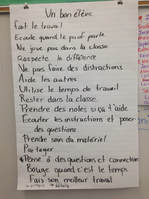
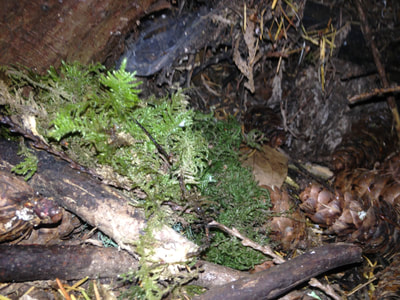
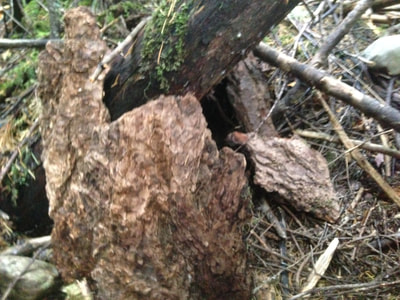
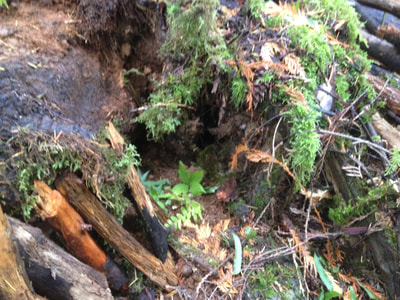
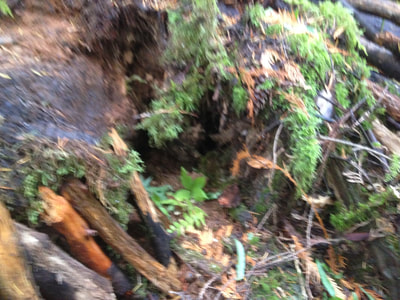
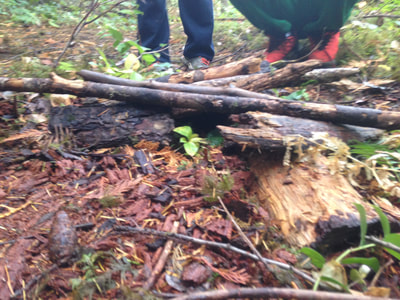
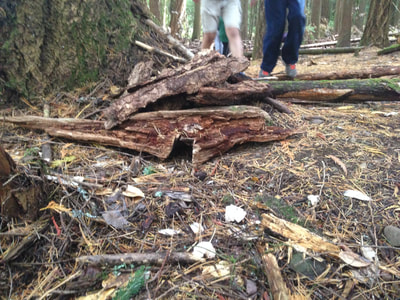
 RSS Feed
RSS Feed
